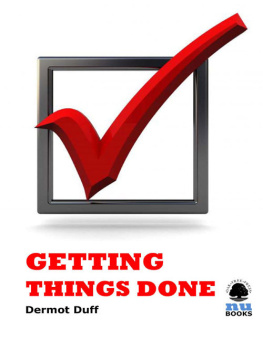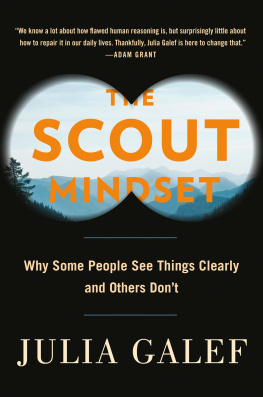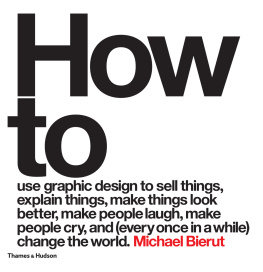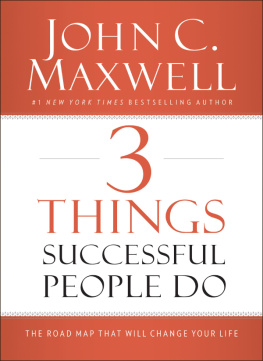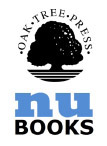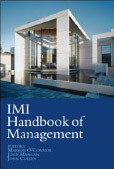ABOUT OAK TREE PRESS
Oak Tree Press develops and delivers information, advice and resources for entrepreneurs and managers. It is Irelands leading business book publisher, with an unrivalled reputation for quality titles across business, management, HR, law, marketing and enterprise topics.
In addition, through its founder and managing director, Brian OKane, Oak Tree Press occupies a unique position in start-up and small business support in Ireland through its standard-setting titles, as well training courses, mentoring and advisory services. Oak Tree Press is comfortable across a range of communication media print, web and training, focusing always on the effective communication of business information.
Oak Tree Press, 19 Rutland Street, Cork, Ireland.
T: + 353 21 4313855 F: + 353 21 4313496.
E: info@oaktreepress.com W: www.oaktreepress.com.
ABOUT THE AUTHOR
Dermot Duff is a management specialist at IMI, who uses his wealth of international business experience and a wide range of qualifications to help organisations achieve meaningful change. With a BE from University College Dublin and an MSc in Management Practice from University of Dublin, Trinity College, he works in the area of strategy, implementation, project leadership and all aspects of operations management, from product development through manufacturing and supply chain management to service delivery. A director and advisor in a number of companies, Dermot combines academic research with a pragmatic approach, and works with clients across a range of industrial and public sector organisations.
ABOUT THE EDITORS
At the time of original print publication, Marion OConnor, John Cullen and John Mangan were Management Researcher, Senior Management Researcher and Director of Research respectively at IMIs Centre for Management Research and the editors of the IMI Handbook of Management , on which this ebook is based.
Getting Things Done is extracted from the IMI Handbook of Management (ISBNs 978-1-86076-292-5 hardback, 978-1-86076-293-2 paperback), edited by Marion OConnor, John Cullen and John Mangan, and published by Oak Tree Press, www.oaktreepress.com, in association with IMI).
The titles in this ebook series include:
- Managing Your Time.
- Getting Things Done.
- Managing Stress & Your Health.
- Planning Your Career.
- Motivating Others.
- Building Effective Teams.
- Negotiating Effectively.
- Facilitating Meetings & Chairing Discussions.
- Managing People.
- Managing Customers.
- Presentation & Communication Skills.
- Internal Communications.
- Assertiveness.
- Influencing Others.
- Gathering Business Information.
- Business Writing.
- Managing in Changing Times.
- Managing Outsourcing.
- Doing Business Strategy.
- Leadership.
APPENDIX: KEY PHASES IN MANAGING A PROJECT
To help you get thing things done in formal projects, use the following structure.
Definition phase
The definition phase of managing a project may include the following steps:
- Idea generation.
- Needs generation.
- Concept screening.
- Feasibility study.
- Statements of requirements.
- Objective-setting.
- Budgeting.
| Questions to be asked in this phase | Source of Answers |
| What is the purpose of the project? | Project Statement |
| How will we know when the project is complete? | Objectives |
| How will we decide how to do the project? | Options |
| What are the key pieces of work to be done? | Work Breakdown |
| What do we need to accomplish the task? | Resource Requirements |
| Does everybody involved in the project agree with the first five issues? | Project Definition Meeting |
Planning phase
The planning phase of managing a project may include the following steps:
- Solution selection.
- Impact and opportunity analysis.
- Estimation.
- Scheduling.
- Diarying.
- Milestone-setting.
- Task agreement.
- Risk analysis.
| Questions to be asked in this phase | Source of Answers |
| Who will be responsible for the tasks identified in the work breakdown? | Responsibility Charting |
| When will the tasks and sub-tasks be carried out? | Project Planning Techniques |
| What could go wrong? | Problem Finding |
| When will we need resources? | Resource Planning |
Implementation / Closure Phase
The implementation and final phase of managing a project may include the following steps:
- Status updating.
- Risk control.
- Problem-solving.
- Team-leading.
- Review of learnings achieved.
- Close-out and celebrate.
| Questions to be asked in this phase | Source of Answers |
| Is the project on time? On budget? Up to standard? | Project Monitoring |
| What is causing delays/problems? | Problem Analysis |
| How do we get the project back on track? | Project Modification |
| How does each team member know how he/she is performing? | Regular Feedback |
| Is the project done? | Project Objectives, Monitoring Reports |
| What has to be given to the client? | Identification of Deliverables, Accomplishments |
| How well was the project done? | Evaluation against Objectives |
| What happens to the team now? | Reassignment, Final Feedback |
KEY LEARNING OBJECTIVES
- Learn the 25 lessons of getting things done.
- Manage yourself and others for greater impact.
- Recognise the power of simplicity.
- Realise that you have the power to change.
- Identify the key stages in project management.
Success depends on getting things done. Why then, is it invariably so difficult? Just what is the secret of getting things done? Is it enough to use your to do list better, or do you have to change your whole mindset and even personality?
TWENTY-FIVE LESSONS
To do lists are very necessary, but not sufficient, to really get things done. Changing your psychological outlook seems like drastic and unreliable medicine. So, what do high achievers do to be successful? What pitfalls of low achievers might usefully be avoided? How can I achieve more?
For those of you who have tried overly-simplistic and prescriptive self-help books and basic project management tools, you will know they help a little but, on their own, they are not enough. In this ebook, you will learn the key lessons in getting things done which will help to further your business goals or simply get more out of life.
Enjoy the many short lessons in this chapter, think about the underlying principles, decide what key tools you will use, and then start immediately to get more done.
Lesson 1: Its simple keep it that way

